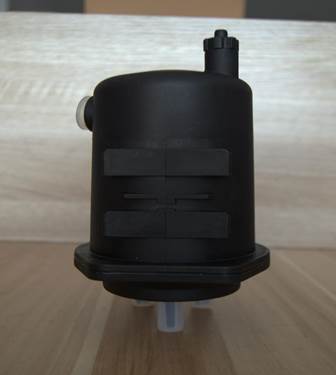Aug . 08, 2024 01:05 Back to list
Understanding CE Certification for Oil Filters and Its Importance in Automotive Standards and Compliance
Understanding CE Certification for Oil Filters
In the automotive industry, ensuring the highest quality and safety standards for components such as oil filters is crucial. One significant indicator of quality assurance in Europe is the CE mark, which signifies that a product meets EU safety, health, and environmental protection standards. This article delves into the importance of CE certification for oil filters, what it entails, and why it's essential for both manufacturers and consumers.
What is CE Certification?
CE marking is a declaration by the manufacturer that their product complies with applicable EU regulations and directives. For oil filters, CE certification implies that the product meets necessary standards to ensure functionality, safety, and environmental considerations. The process involves thorough testing and assessment to confirm that the oil filter will perform effectively in the intended environment and application.
Importance of CE Certification for Oil Filters
1. Safety Assurance Oil filters play a critical role in the overall efficiency of an engine by filtering out contaminants from the oil. A certified oil filter means that it has passed stringent quality checks, reducing the risk of product failure that could result in engine damage or accidents.
2. Quality Control The CE certification process requires manufacturers to implement rigorous quality control measures throughout their production processes. This ensures that every batch of oil filters meets established standards, promoting consistency in performance and lifespan.
3. Consumer Confidence For consumers, purchasing a CE-certified oil filter provides reassurance that the product has gone through extensive evaluation. This recognition allows customers to make informed decisions, boosting their trust in both the product and the brand.
4. Market Access In many regions, CE certification is mandatory for products to be sold in the market. Without this certification, manufacturers may find themselves unable to access significant markets within the European Union, limiting their business opportunities and growth potential.
5. Environmental Compliance CE certification also covers environmental aspects. It ensures that the materials used in manufacturing oil filters and the disposal processes adhere to environmental regulations, reducing their ecological impact. This is particularly vital in today’s automotive landscape where sustainability plays a central role.
ce certification oil filter

The Certification Process
The CE certification process for oil filters typically involves several steps
1. Assessment of Applicable Directives Manufacturers must first determine which EU directives are applicable to their product. For oil filters, directives related to machinery, safety, and environmental protection often apply.
2. Testing and Compliance The oil filters undergo various tests to ensure they meet performance standards. This can include tests for filtration efficiency, pressure resistance, and overall durability.
3. Technical Documentation Manufacturers must compile technical documentation that outlines the product specifications, test results, and compliance with relevant directives.
4. Conformity Declaration Once the product passes assessments and testing, the manufacturer must sign a Declaration of Conformity, which states that the product meets all relevant EU requirements.
5. Affixing the CE Mark After compliance verification, the manufacturer can affix the CE mark to the oil filter, signifying that it meets all applicable standards.
Conclusion
CE certification for oil filters is a crucial aspect of ensuring safety, quality, and environmental compliance within the automotive industry. For manufacturers, it opens doors to broader markets and enhances brand reputation, while consumers can enjoy peace of mind knowing that they are purchasing a reliable product. As the automotive sector continues to evolve, the importance of standards like CE will only grow, emphasizing the need for robust quality assurance in all automotive components.
-
Cheap PLJY109-500 Full-Auto HDAF Expanded Mesh Spiral Coiling Machine - High Efficiency & Quality Manufacturer
NewsJul.08,2025
-
Best PLHJ-6 Full-Auto Eco Filter Rotary Heat Plating Machine - High Efficiency & Eco-Friendly Solution
NewsJul.08,2025
-
High-Efficiency Paper Pleating Machine for Filters Trusted Filter Paper Pleating Machine Company
NewsJul.07,2025
-
High-Performance Oil Filter for Cadillac ATS – Reliable Engine Protection Solutions
NewsJul.07,2025
-
High Quality PU Glue for Filters – Reliable Filter Glue Supplier & Exporter Get PU Glue Quotes Now
NewsJul.07,2025
-
China PLJL-4 Seal Leakage Tester for Spin-On Filter - High-Precision Multi-Station Testing Solutions
NewsJul.06,2025
